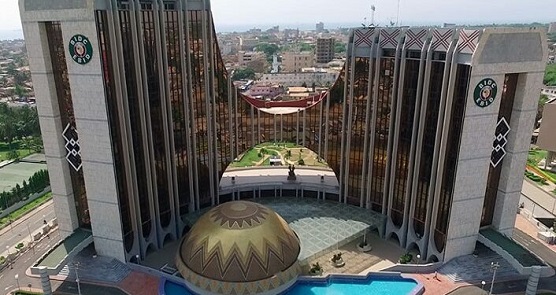By Iyemah David
The ECOWAS Bank for Investment and Development (EBID), says it is pleased to partner with WAHO to finance health care delivery and infrastructure deficit for effective delivery of health care services to the the sub-region.
President of EBID, Dr George Agyekum Donkor said this in an interview with newsmen, on Friday in Accra, on the sidelines of the 23rd Ordinary Meeting of the ECOWAS Assembly of Health Ministers (AHM).
The ECOWAS AHM is a statutory body established by Article 5 of the Protocol of Establishment of the West African Health Organization, (WAHO).
It is composed of Ministers of Health of the 15 Member States and meets once a year in ordinary sessions.
Donkor said that since EBID’s inception in 1987, it has worked hard to attain the highest possible standard and protection of the health of the peoples in the sub-region through the harmonization of policies of Member States, pooling of resources, cooperation with one another and with others for collective and strategic combat against health problems of the sub-region.
He said that the bank continues to observe with admiration, the unflinching encouragement and support that ECOWAS Health Ministers offer the mission of WAHO, its programmes, and projects regardless of daunting economic circumstances.
According to Donkor, “we are delighted at the potential contribution of Traditional Medicine to the health and well-being of our citizens” and called on all to ensure the successful promotion of safe and effective utilisation of Traditional Medicine through regulation, research, and practice.
“In this regard, we commend WAHO’s collaboration between orthodox and traditional medicine practitioners considering that a huge percentage of our teeming populations reside in rural areas where in many cases, traditional medicine practitioners are the only available health caregivers,” he said.
He stressed that indeed, the inestimable support and various forms of encouragement received from the decision-making bodies have enabled WAHO in these times of epidemics and scarcity of resources, to focus on, but not limit the range of its vital services to its thematic areas.
“These areas are Maternal, Child and Adolescent Health; Quality Standards and Centres of Excellence; Pharmaceuticals medicines and vaccines, Prevention and Control of Communicable and non-Communicable Diseases; and Health Information.
“We are at a turning point in the region. COVID-19 has been a truly global crisis in which we all have shouldered a burden.
“In many cases, this has caused us to reflect on those longer injustices that have perpetuated in parts of the world where the pandemic is yet another layer of misery, instability, and unrest.
“These inequalities have been exposed and exacerbated by the impact of the pandemic, both between and within countries. The effects will be felt on a global scale for years to come.
“The impact of a catastrophe like the COVID-19 pandemic is measured in the tragedy of individual loss and death, as well as the national and global disruption to almost every part of life. No country in the world has been untouched,” he said.
He warned that the COVID-19 pandemic is still much around as shown across the world and the pattern it would take is hard to predict.
He cautioned that the people of the region must not let their guards down, saying “to enable the region to conquer the COVID-19 variants, there has to be good progress on the region’s vaccination campaign rates.”




